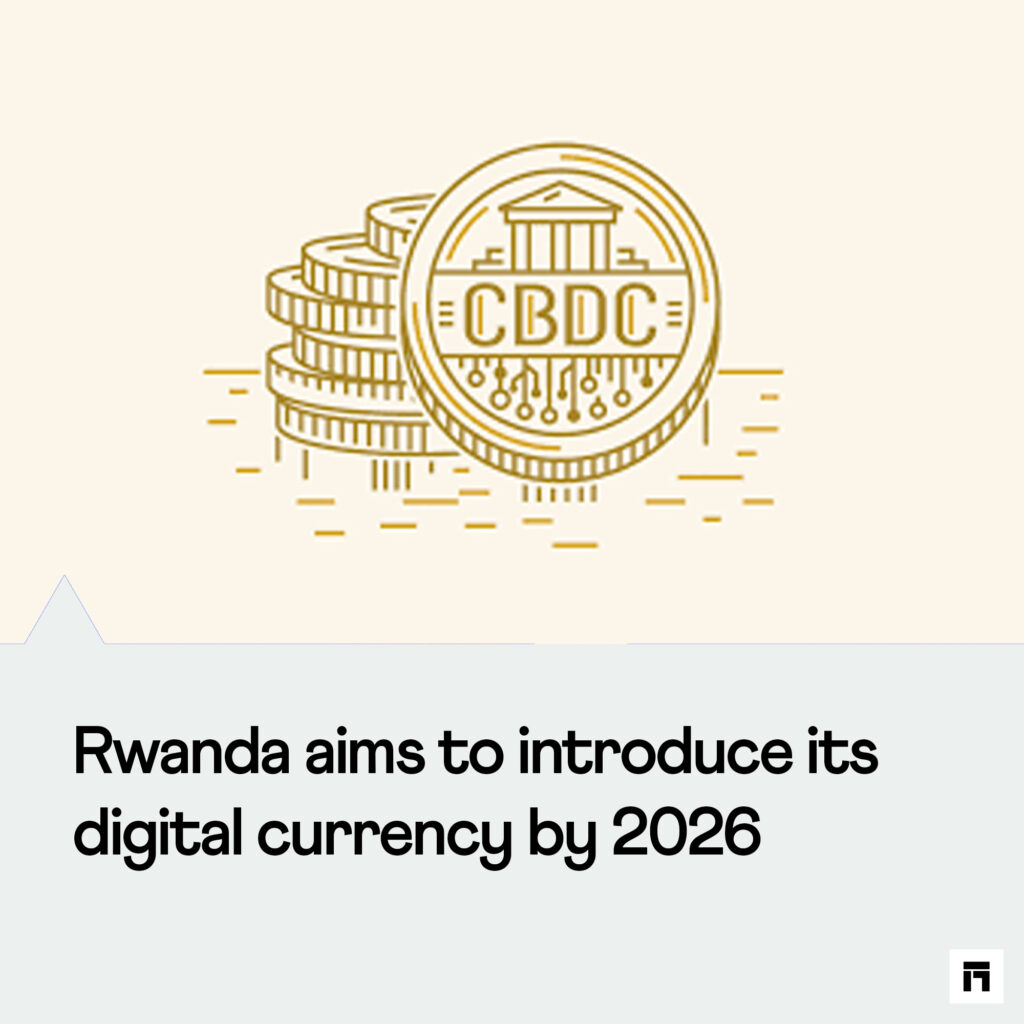-
By 2026, Rwanda plans to introduce its Central Bank Digital Currency (CBDC) to provide a convenient and secure alternative to physical cash.
-
This initiative will support its ambitions for ICT and a cashless economy to enhance financial inclusion.
-
A comprehensive feasibility study and public consultation will be conducted for the Rwanda Digital Currency development and implementation.
Rwanda plans to develop its own national Central Bank Digital Currency (CBDC) within the next two years. According to the National Bank of Rwanda (BNR), this initiative will provide Rwandans with a safe, accessible, and convenient alternative to physical cash.
The CBDC is expected to enhance the country’s financial inclusion, allowing more unbanked individuals to participate in the formal economy. Deputy Governor of Rwanda’s Central Bank, Soraya Hakuziyaremye, revealed the 2026 timeline for this significant development.
Introduction to Rwanda Digital Currency Initiative by 2026
Hakuziyaremye emphasized the importance of the Rwandan CBDC, citing developments in other countries, including Nigeria, Ghana, and South Africa, which are either piloting or have already launched their CBDCs.
Observing these nations, especially Rwanda’s major trading partners, influenced the decision to explore this technology. Given Rwanda’s ambitions for ICT and a cashless economy, the country needed to assess the benefits of following this trend.
In November 2023, National Bank of Rwanda Governor John Rwangombwa highlighted the CBDC’s development while presenting the central bank’s annual fiscal year 2022/2023 report to Parliament.
In May 2024, the government introduced a feasibility study on CBDC in Rwanda to examine the potential benefits, risks, and practicalities of implementing a retail CBDC.
Feasibility Study and Public Consultation
The Deputy Governor collaborated with the Ministry of Finance, ICT, and Innovation to form a task force for the feasibility study, revealing numerous opportunities for Rwanda to adopt a national digital currency.
To increase adoption, the authority published a research paper and conducted a public consultation process to address concerns such as data privacy, resilience, and the potential destabilization of the financial system.

Following the public consultation process, which concludes in the next four weeks, Rwanda will embark on a proof of concept to test the technology, design, and speed on a small scale.
A six-month international test on the technology for cross-border payments will also be conducted. Individuals and companies will be mapped out to test the digital currency, ensuring its robustness and reliability.
Design and Accessibility of the Rwandan CBDC
While considering various CBDC design options, Rwanda prefers a retail CBDC distributed through banks. The National Bank of Rwanda is also exploring the development of a CBDC that is accessible offline, especially in areas without internet access or smartphones or during power outages.
This consideration is crucial for maintaining inclusivity and ensuring that all Rwandans can use the CBDC, regardless of their technological access.
The National Bank of Rwanda (NBR) aims to join other countries globally that have introduced digital currencies as alternatives to physical cash. About 11 central banks worldwide have issued digital currency options to their citizens, with Ghana, Nigeria, and South Africa being the only African countries in the initial stages of introducing them.
The Vision for Rwanda’s Cashless Economy
Rwanda’s plans for a digital currency align with its ambition to become an ICT hub and transition to a cashless economy. Many Rwandans share this vision, as the CBDC would function similarly to banknotes, coins, or electronic payments, facilitating seamless transactions.
Deputy Governor Hakuziyaremye explained that creating the digital currency would be meticulous and slow, involving engagement with the private sector and regional trading partners to ensure its validity.
ALSO, READ: Flutterwave secures two digital currency licenses from Rwanda.
The technology and its design will be tested in a small-scale experiment by gathering insights and feedback from various stakeholders. This careful approach addresses potential risks, such as lack of adoption, which could undermine the rollout’s effectiveness.
Challenges and Global Perspectives
Despite the promising prospects of CBDCs, challenges remain. Digital currencies will also be rolled out in the European Union and China next year.
However, countries like Kenya, known for its solid cashless economy, could be more enthusiastic about the idea. The Central Bank of Kenya stated that issuing a digital currency was not a priority, although they remain open to insights.
Globally, the allure of CBDCs is fading due to the popularity of deregulated cryptocurrencies. Central Banks prefer to roll them out through local banks and directly control their supply, allowing governments to trace and track transactions. This centralization contradicts the financial security principles that digital currencies initially aimed to promote.
In Nigeria, despite governmental efforts to crack down on P2P platforms, the naira has been largely ignored due to the popularity of cryptocurrencies.
Central Bank Digital Currencies promise robust protection, but to investors, this translates to potential governmental overreach and violation of financial secrecy. Centralization is seldom a feature that aligns with the ethos of digital currencies.
Conclusion
Rwanda’s plan to issue a digital currency by 2026 marks a significant step toward achieving a cashless economy and increasing financial inclusion. The National Bank of Rwanda’s meticulous approach, including feasibility studies, public consultations, and small-scale testing, aims to address potential risks and ensure the successful adoption of the CBDC.
As Rwanda navigates the challenges and opportunities of this digital transformation, it stands to join the global movement toward innovative financial solutions.
